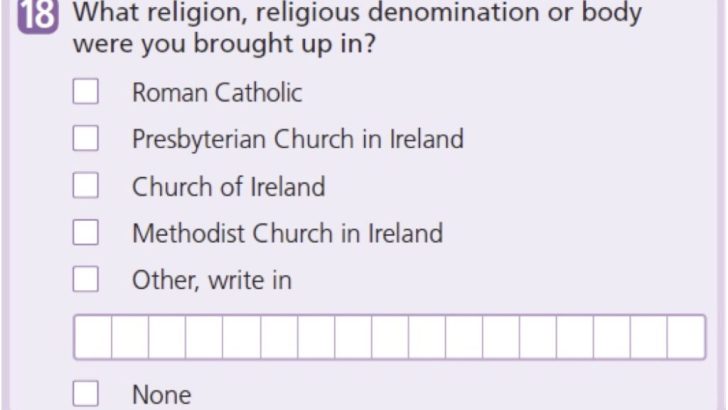With traditionally Protestant areas particularly affected by the rise in ‘no-religion’ in the 2021 Northern Ireland census, an anthropologist has suggested that it could be the “backlash” of a more liberalised population against Protestant conservative influence.
Speaking to The Irish Catholic newspaper, Dr Hugh Turpin of the Oxford School of Anthropology & Museum Ethnography said that if “conservative social influence” is seen as coming from the DUP, Presbyterianism or Protestant ministers, “liberalised youths”, are more likely to “backlash against the Protestant traditions than the Catholic one”.
“Down south, increasingly now, the past is viewed as this Catholic theocracy and people backlash against that, whereas in the North, Catholicism was the oppressed tradition so it didn’t have that level of social control for people then to backlash against, so it’s kind-of the opposite in the Protestant situation up North,” Dr Turpin told this paper.
“So I think there are various reasons up North where you don’t get the backlash against Catholicism, and it seems to be directed more towards Protestantism and those are more to do with conservative influence over the State I think.”
The 2021 Northern Ireland census revealed that 17.4% of the population now identify as having ‘No religion’. This is an increase of 7.3% on 2011 when 10.1% had ‘No religion’.
Mid and East Antrim (32.2%) and Ards and North Down (28.5%) were the Local Government Districts with the highest percentage of the population whose current religion was the Presbyterian Church in Ireland, but Mid and East Antrim saw around one in four people (23.9%) and Ards and North Down one in three people (32.1%) as having ‘no religion’ or ‘religion not stated’.
Meanwhile, Lisburn and Castlereagh (16.3%) was one of the Local Government Districts with the highest percentage of the population whose current religion was Church of Ireland, and also saw around one in four people (25.3%) identify as having no religion or ‘religion not stated’.



